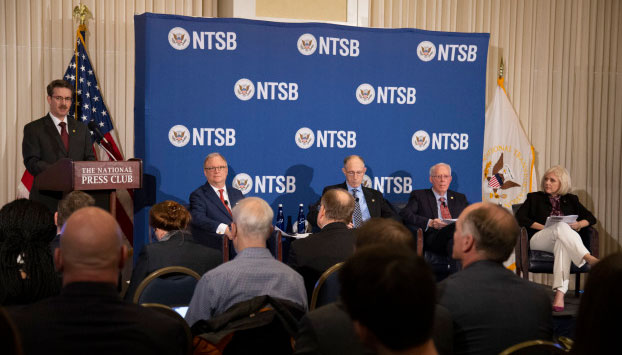Key Point Summary:
- LOC-I has been removed from the NTSB “Most Wanted List”
- LOC-I Remains the Greatest Cause of Fatalities in Aviation
- The Perception of the LOC-I Threat is Underestimated
- The Problem Will Not Be Fixed Without Changes to Training
- Properly Conducted UPRT Programs Save Lives by Mitigating the Risk of LOC-I

After four years of inclusion of “Prevent Loss of Control In-flight in General Aviation” on the National Transportation Safety Board (NTSB) Most Wanted List, their most recent listing for 2019-2020 has removed Loss of Control In-flight (LOC-I). This is despite the fact that in 2017 the NTSB stated that “NTSB data from 2008–2014 confirm that loss of control continues to be the biggest killer in general aviation.” Data through 2017 shows the predominance of LOC-I as the leading cause of fatalities in all categories of aviation (not just General Aviation) still exists today, so why did the NTSB remove LOC-I from their list?
The NTSB has responsibility for the safety of many modes of transportation and has to balance many different concerns and threats across the full spectrum of transportation. It is understandable that from a marketing perspective some flexing to different areas can generate interest in different subjects.
Perception Does Not Equal Reality
The problem with taking LOC-I off the Most Wanted List is that the NTSB provides a very powerful spotlight to focus industry attention on underappreciated threats. In the case of LOC-I, this heightened visibility is critical. Past surveys by the NBAA Safety Committee have shown that LOC-I is greatly underestimated, and not understood to be the leading cause of fatalities in aviation that it actually is.
The greatest problem with the removal of LOC-I may be the incorrect perception that the LOC-I problem for General Aviation has been “fixed.” Since it remains the leading cause of aviation fatalities, that is far from the case. Without constantly focusing on the problem, it becomes more difficult to identify the solution. For many in the aviation industry, there is a mistaken belief that our current licensing system is fine, and that we just need to do a few things a little better to substantially reduce the LOC-I problem.
Existing Pilot Licensing Training is Inadequate to Reduce LOC-I
At APS we do not believe this to be the case. While our existing pilot training system is working very well at creating safe pilots within the normal operating envelope (when pilots are able to stay there), the predominance of LOC-I as the major cause of fatalities shows conclusively that current pilots are not adequately prepared to prevent or respond to upset events which take them beyond the boundaries of the normal operating envelope. In an unexpected upset, pilots without comprehensive, modernized Upset Prevention and Recovery Training (UPRT) in full compliance with the ICAO Manual on UPRT enter a domain they have never seen before and are unable to safely and effectively respond to based on existing licensing requirements alone.
The Solution to LOC-I Exists
For flight departments and pilots who understand that LOC-I remains their greatest threat and that today’s licensing training is inadequate to provide them with the proficiency required in an unanticipated upset event, APS provides proven solutions. The NTSB has taken LOC-I off their list because they felt it was time to highlight a different, less severe threat, but that doesn’t change the fact that the LOC-I threat itself remains and continues to be #1 cause of fatalities in aviation. APS UPRT markedly reduces the threat of LOC-I through industry-leading training which combines an academic foundation with practical skill development in a number of different aircraft and simulator platforms. At APS, we help pilots bring everyone home safely.




Comments: